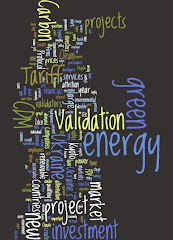This is pretty exciting stuff, hopefully the project will be a success. The project in this case relates to energy trading and allowing users to buy green energy for a discount to market prices via blockchain technology. It is an early step into taking energy trading and green energy payments onto the blockchain, decentralizing the process and making it more libertarian.
Even if it has hiccups, it is a signal for the way things could look in the future. For instance, one of the issues with the former Kyoto Protocol trading mechanism was that the ultimate number of carbon credits was uncertain and also the oversight over their production and issuance was inconsistent worldwide. If one included the initially assigned Assigned Amount Units under the Kyoto Protocol, the market really didn't need many carbon credits to begin with, and this was made worse by the financial crisis of 2008-2009. The market's solution was to largely ignore AAUs even though legally they could have supported the entire market needs by themselves and without anyone taking on any renewable energy projects.
Blockchain technology could play a role in fixing this problem for future regional or worldwide emission trading schemes. A fixed number of tokens could be issued based on the scientific cap of emissions needed to be achieved to prevent negative climate change. Eligible market participants could trade these units amongs themselves using blockchain technology without lengthy, costly, inefficient, or perhaps even corrupt government stakeholder interference. Tokens could be differentiated by industry sector and/or subsector, and the cost for the tokens via token offerings to industry players could be set at an agreed level that would seek to capture the opportunity cost versus marginal cost of companies paying for cleanup at their sites themselves. Then the tokens could freely trade among the eligible market participants, and participants could elect to submit one token as an offset for one ton of CO2 equivalent emissions from their sites each year. Am I crazy or is this the sort of thing that could work well?



